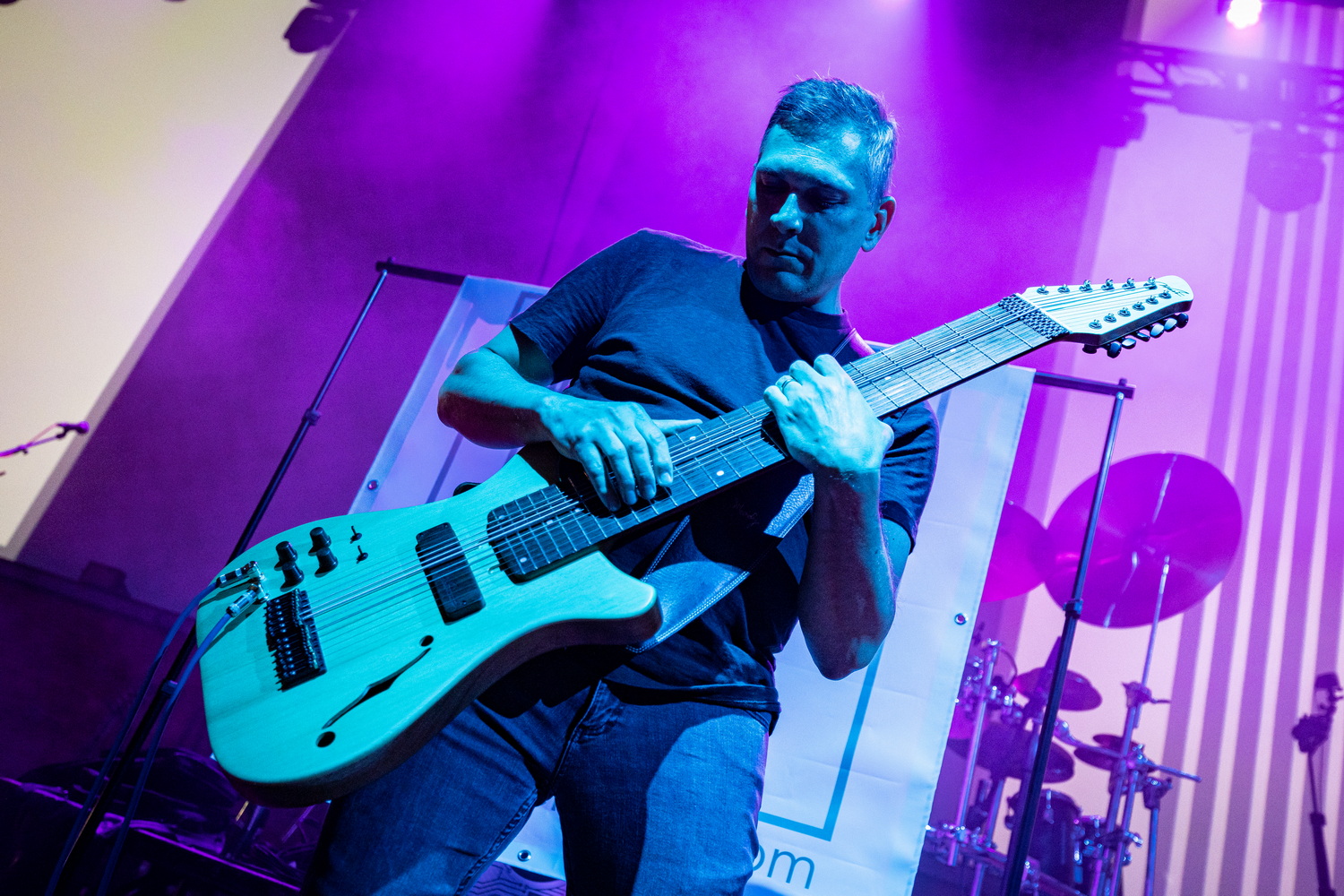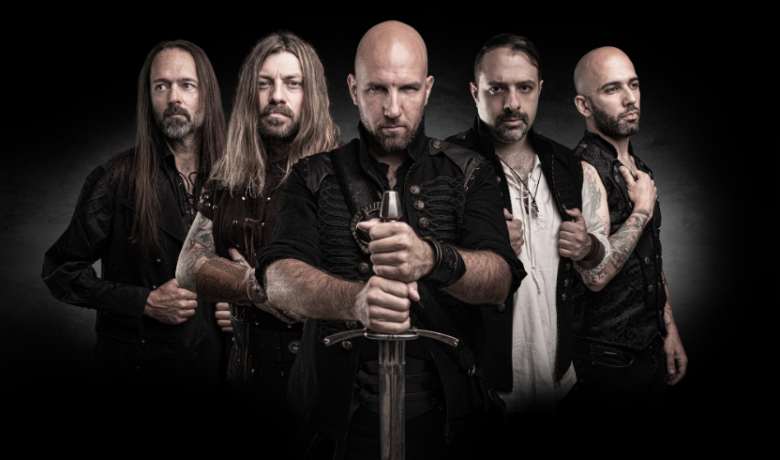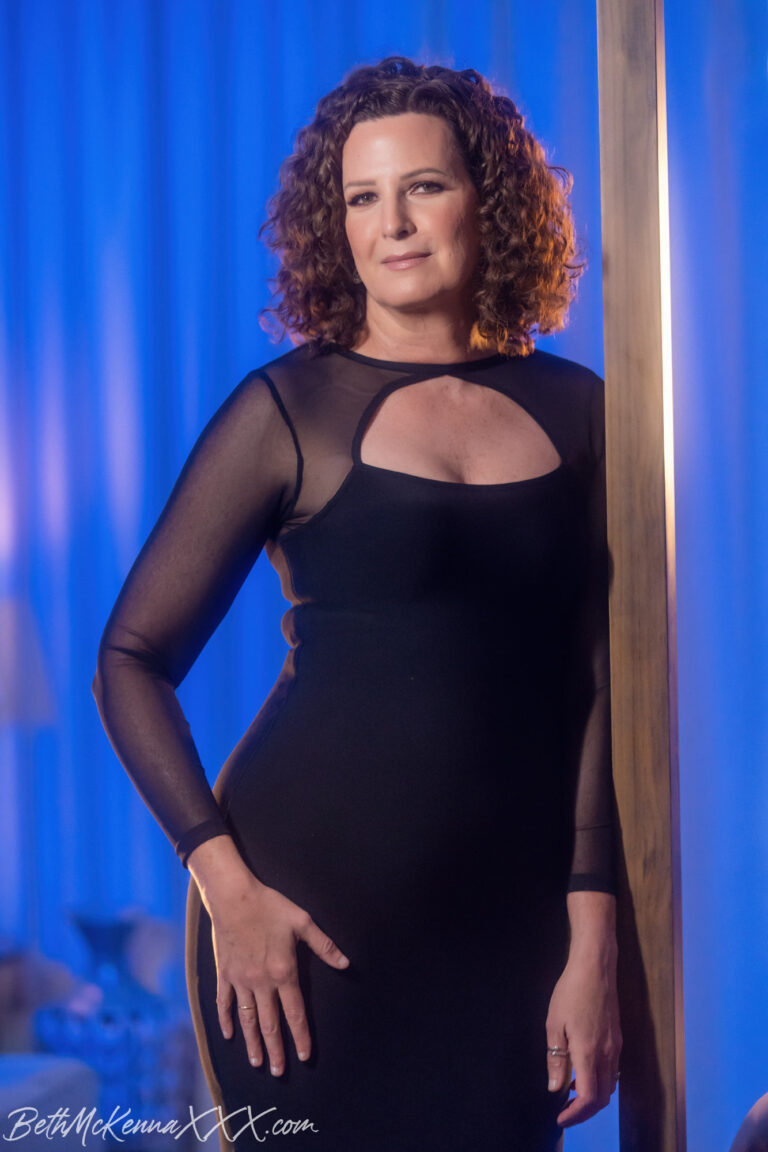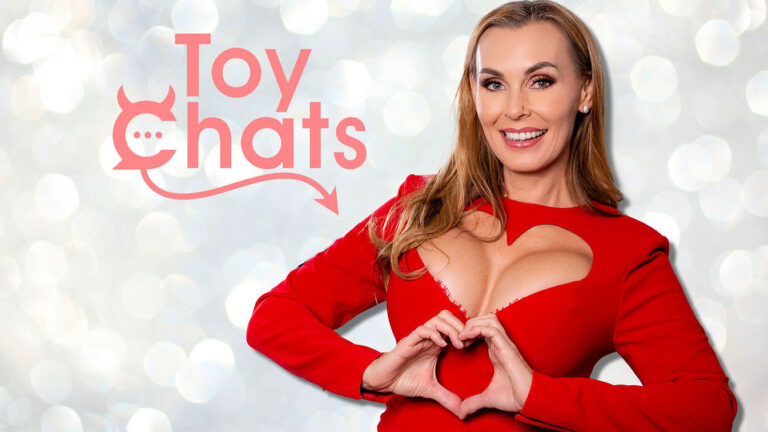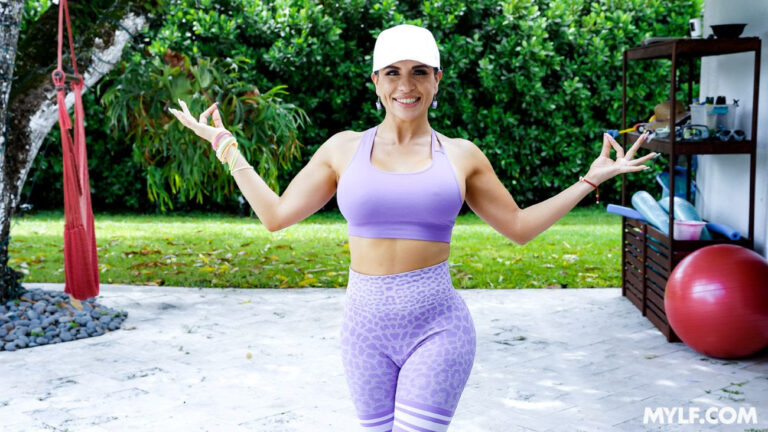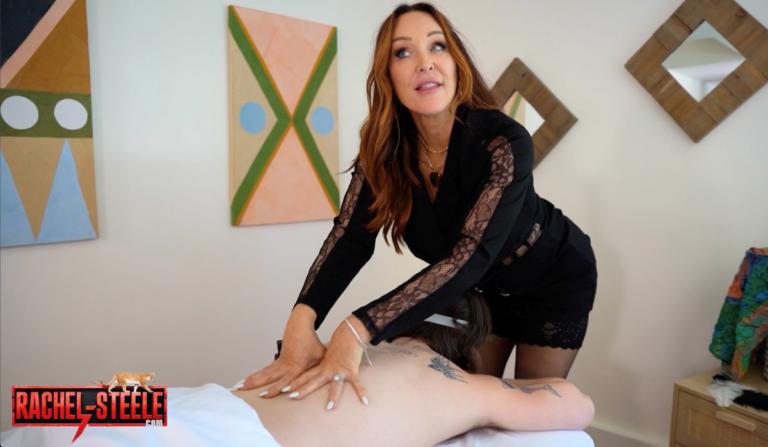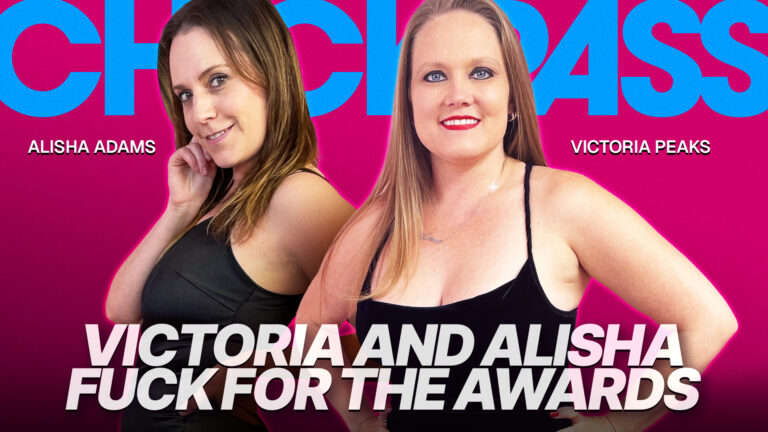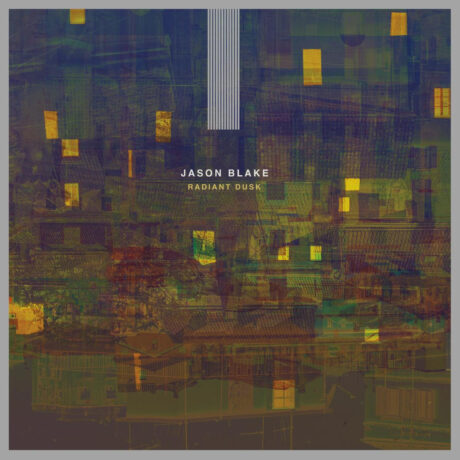
As Chicago-based progressive Warr guitarist JASON BLAKE prepares to Release Radiant Dusk In October With Companion Album, Slightly Different Paths, To Follow In November, he sat down for an extensive discussion with the Emmreport regarding all things Jason Blake. From his writing process, to bouncing new stuff off his mom, solo shows, ambient music,heroes to his never ending appreciation of the Warr instrument. Radiant Dusk will be independently released digitally on October 20th. Slightly Different Paths will be released in November, at which time both records will be released in a 2xCD package. Find preorders for Radiant Dusk HERE.
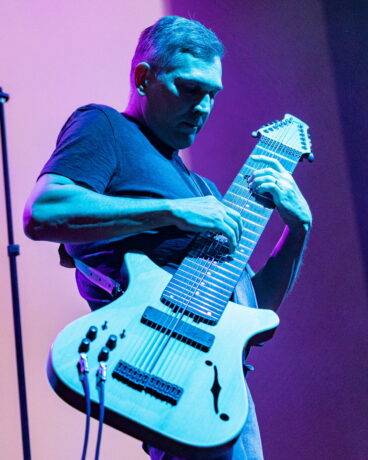
All photos courtesy of Jason Blake
Please be sure to check out all socials, platforms:
www.instagram.com/jasonblakemusic
www.facebook.com/jasonblakewarr
Interview: Sherman Way
Editor:Ralph Greco, Jr.
SW: Sherman Way
JB: Jason Blake
SW: Is Radiant Dusk a conceptual project? When I listened to it, I closed my eyes and just imagined the story.
JB: Yes, Subsequent Ruins is a story. I did that one with Marco Minwin. That one is a story. The cover art has the child’s art of drawing of a phone. That came out a little earlier this year, it was basically a modern retelling of the Pied Piper. I reread the story, Pipe Piper and just realized there’s a lot of similarities between that and modern-day kind of what technology is doing with children.
The same idea of walking children off the hypothetical cliff. So that album is conceptual. Radiant Dusk, however, is just a collection of songs. I think of it as, I do so many conceptual things. It was really my chance to break away from that and just do a solo Warr guitar album that had really no connection from start to finish, just a lot of songs that I just enjoy playing. When I play my solo shows, I use a lot of that material.
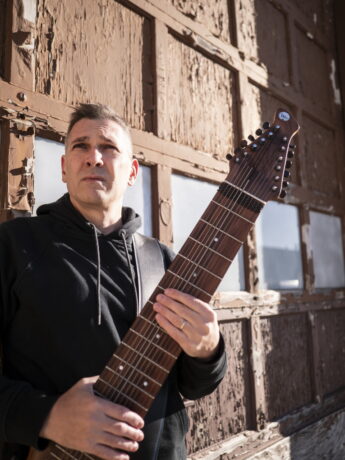
SW: Radiant, when you put the songs together, did you do one song three months ago, and then another later, because if I’m not mistaken, you’ve done like five albums in two years or something.
JB: So it’s been a bit of a creative flurry for me in the last few years. I think what helps is that everything kind of changes genres a little bit. I’ve done some ambient music for a record label named Wayfair Records. The Subsequent Ruins album with Markle Minimum, that was done for the Tray Gun 7D label. This new one, Radiant Dusk, I just really wanted to do something that was intimate, more acoustic sounding, representative of what I do a lot when I play just little smaller solo shows. So that’s what this one was. And so I wanted it to feel different from my progressive world with 7D media or my progressive metal world with Azula Cry, my band, that’s on Sensory records, or my ambient music with Wayfair. I released this independently and just wanted it to be kind of its own thing, really. So that’s what Radiant Dusk is for me. It’s just me with my Warr guitar. I played the actually, it’s a semi-hollow Artisan Warr guitar for this one. So as to give it a little bit more of an acoustic tone to it and really represent what it is that I sound like if it’s just me on a small stage playing more guitar by myself. So that’s what this one really was meant to be.
SW: When you create ambient music, did you hear a sound prior and maybe wanted to expand on it? Or how does that happen?
JB: So for the ambient stuff, it very much comes about by way of tinkering, at least for me. I use a series of pedals that they’re actually sitting right here to my left. And what I do is just start to tinker with them, find something that I like, and use that as a starting point, and then eventually just keep building on it. I don’t know how everybody creates ambient music, but for me, it’s really about the experimentation process for that, which is very different from how the rest of the music I do. That’s very composed. That’s very planned out. But for ambient music, it’s really, for me, it’s just about that experimentation, trying to find a sound that inspires something or finding just a little glitch that can be the basis of something. I remember when I found this glitch that it sounded orchestrated like it was a full orchestra playing a repetitive part. And I liked it so much I used just that simple part, then repetitively throughout as the basis of an ambient song. So it’s happy findings by way of just toying around for me, at least. That’s how I create that stuff.
SW: When you create a specific ambient track, how do you know when it starts and how do you know when it ends?
JB: It depends. So the more droney stuff I do, it really just kind of comes to the point where I just feel like, ” Ah, this is enough. ” I did three drone-like albums, and I would say in those cases, that it really just kind of feels like it’s over. The other stuff that I’ve done, though, I started a trilogy. I’ve done two of them. One was Fictional Mirrors. The second one was called Compromise Rationale. And those are more ambient music in a compositional form. So they’re very much songs. You can feel the beginning of the song. You can feel the ending of it. And so it depends on what kind of music I’m doing. But with those albums in particular, if you listen, they sound like progressive rock songs within the confines of more of an ambient album. So there’s a definitive beginning, middle, and end kind of a thing versus the drone stuff. I think if I were listening to it, I’d have the same question.
SW: What made you decide to choose this ending?
JB: A lot times, it’s really just it kind of feels like, “All right, this is said enough or it can’t say much more, ” so I would end it at that point.
SW: When you created Radient Dusk, was it written for the stage? To be performed live?
JB: So what happens is, I write a lot for bands. So my band as Azula Cry. If you listen to that, while I would say the Warr guitar is very much a featured instrument in that band, it requires the drums. It requires the guitar to be there as well. For Subsequent Ruins with Marco, it’s kind of similar. You take Marco out and the songs don’t quite sound the same as with Marco in it, of course. So this was really my album where I wanted to make a statement simply by myself, but I didn’t necessarily want it to feel like it required something else to be there. And so the compositions were very much intended to be that. I wanted it to be very bare, just the Warr guitar alone. And I also wanted them to sound live, I very much improvise the solos, but I wanted them to be a lot more contained. The songs are about three minutes long. I think the longest one is five minutes or four minutes, which is very unlike what I typically do, where I’ve got 20-minute long songs and these extravagant progressive rock lengthy things. So this was very much me doing the opposite. I wanted it to be almost pop song format, you know like verse, chorus, verse chorus with a solo in there, even though the solo is kind of happening throughout because of the nature of wanting to fill in with my playing ability. But it was definitely more of a concentrated effort to make these sound like solo songs that could stand by themselves and be played live. A lot of these songs actually have been played live on numerous occasions already. And so it’s just the record’s finally coming out. But I’ve been playing these songs now, in some cases, for over a year with some of this music.
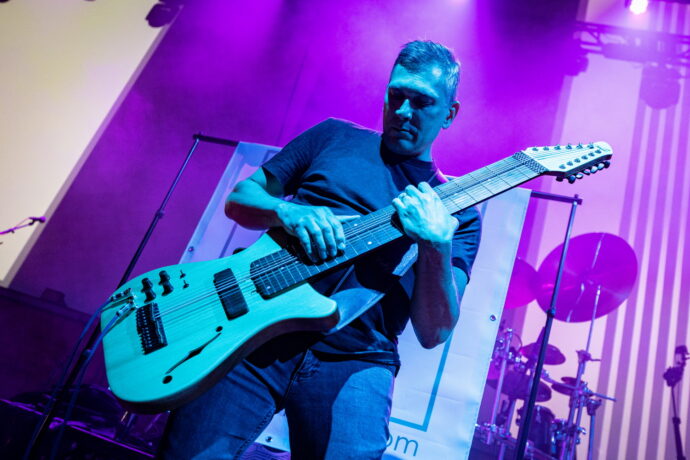
SW: When you do perform them, are they note for note the exact same thing as the album, or do you prefer to improvise when you go through it, even if it’s like a three-minute type of thing?
JB: I’ve always taken more of the approach that I like the live version to be a different version in the record. I guess a good example of that coming from the Prog world, Rush would go note for note like the album. I get that idea, but I really like more the approach of making every performance be unique unto itself. So for me, this {the album} is very much like the blueprint’s there. The songs are there, but then I want to make every night be different. If there’s something that sounds more like it’s a part of the head, so to speak, if it was a jazz tune or the verse or whatever. I do make sure that I include a little bit of that so it doesn’t sound like totally out of left field where it’s unrecognizable. But I do like to take a fresh solo every night with it versus mimic exactly the way the record was. A solo show versus a group show.
SW: Is there a big difference for you? Do you like to improvise more in solo shows?
JB: I would say I do. The solo shows are a lot more improvised. With Azula Cry, a lot of that is the way it was written is the way we play it. I do take two solos in that music where I allow myself to create on the spot. Sometimes I regret it. I mean, there’s been some nights where it’s like, ” Oh, I wish I would have just played the song verbatim because it doesn’t come off sounding exactly the way I wanted it. ” But with this stuff, I like that idea of it being improvised the entire time, it makes every single performance different. And it also the music lends itself a little bit more to that. I don’t want to call it jazz in any way, shape, or form. It’s not. But it has a little bit more of that because it’s kind of me soloing over a majority of it. Whereas with the band or with other projects, it’s a lot more composed in a certain way. So to play it that way makes more sense, where this music, as long as I hit the verse and the chorus, everything in between seems to me like it’s an opportunity to just make up what I feel like that particular night.
SW: Your fan base, do they understand that when they come to see you solo shows?
JB: I think so. I think there’s a couple of the songs from the more progressive rock stuff that I include. I typically end with that. I think it’s a way to just kind of bring it back to what people know me for. But I do find that it also works. At the end of the day, while it might not sound very progressive rock, it’s still the Warr guitar. And I think people who are fans of the Warr guitar are still going to get something from that. You know The fact that it’s one guy, one guitar making a lot more noise than I would say, you know a normal guitar or a normal bass would be able to make, having both of them on the neck. So I think, for the most part, people kind of like it. And one of the things I’ve done to distinguish it is I use my semi-hollow one, like I said, it’s a little bit more of an acoustic tone, so it feels a little bit more in that setting, it makes sense. When I do the Solar shows, like warming up for rock bands, I use more of the electric one, and I use the distortions and stuff like that and play more of the progressive rock stuff. But for this stuff, this is definitely more, you know, me in a smaller room, it sounds better to have it be like this with the acoustic tone and a little less of that progressive rock feel to it, I suppose.
SW: How did you find out about the Warr guitar in the first place?
JB: I’ve been a bass player for a while, and I was doing a lot of tapping. I was a big fan of Billy Sheehan and Stu Hammer. And somebody suggested to me that there’s an instrument called a Chapman Stick where it’s meant to be tapped like the way I was playing. So I looked into it, found that at the time, they were just coming out with something called a Stick Bass. It was an eight-string version. I thought that was my way to dip my toes into the water of this touch style instrument because it was tuned like a bass. It just had extended range with a low B and then further going higher. So I bought one of those, and kind of just fell in love with the idea because I had come from that with the bass, the whole tapping idea. Then I bought a Grand Stick, which is a 12-string version of it. And that one I still own. And then from there, I went and moved on to the Warr guitar because I felt like the Warr guitar for me, of there’s a lot of things about it that just work better for my personal taste. And so I moved into the Warr guitar. I just never really went back to the bass because I just felt like it gave me everything that I was looking for in an instrument. And it brought about a lot of creativity. The tuning and the way it’s played just lends itself to a creativity that I just kind of keep going with. So until the well dries out, I’m going to keep.
SW: How long did it take you to learn how to play it?
JB: Have I learned it? I don’t know. I would say it’s one of those things where it’s a constant process. I do feel myself getting better on the instrument. I don’t know if I consider myself fully where I want to be yet with it. It’s been a pretty involved process getting to this point. But I think that’s the other thing, too, is when you find the instrument that suits you, it just makes it all that much easier because this is an instrument where I can pick it up and get lost in it and find myself you know three hours later, four hours later, 10 hours later, still playing it and kind of realize like, ” Oh my gosh, I’ve spent an entire day playing this thing and never even really realized it. I just keep playing the instrument and love it.
SW: Is there a difference in composing on a Warr guitar as opposed to maybe a bass or a piano or?
JB: I think so. I think that’s why I do compose on it, especially for the band’s scenarios and stuff. I find that having access to both the guitar and the bass is what really has kind of opened up my compositional skills with it. For certain bands, I try to play more the role of the bass player. So even though I’ll use the guitar range, it will be either to take a guitar solo, or it’ll be to just supplement what I’m doing more bass-wise, I can interlock both hands and kind of have one side, the left hand playing a line that’s interlocked with the right hand. And so it sounds like it’s one line, really, but it’s using both sides. For my solo stuff, it’s really more that’s me playing with one hand on the bass, and one hand is on the guitar. So it really depends kind of on what it is I’m doing. From a compositional standpoint, I do find that having access to both sides of it, especially with the solo stuff, it’s really nice to be able to think like, ” Okay, what’s the bass player going to do? ” And most times it’s my left hand. There’s times where I switch and I play the melody side with my left hand and the bass side with my right hand. But for the most part, I would say it’s your left hand is playing the bass line and the guitar is being played with the right hand. So it’s nice to have that thought of separately, where there’s two instruments playing. So from a compositional standpoint, it makes it where you’re really composing for two instruments, even though you’re only playing one.
SW: Have you tried to take a composition and maybe play it completely on the bass side first, and then try and play it separately on the guitar? Do you see what the differences are in tone and all that?
JB: Actually, what happens more I’d say I go the other way. A lot of times something happens on the guitar side, and then I realize, “Oh, that would be really good, but now it just needs to be lower. ” So then I put it to the bass side in the left hand, and then that becomes the basis of a bass line. And then the guitar side usually will solo over it. The only time that gets tricky is just because of the tuning. It’s easier to compose a bass line in the left hand because a lot of the times, you’re thinking more proximity-wise closer to each other. So if you transfer it over, sometimes it could be a bit of a mess. But it still creates interesting things in doing that by composing on the other side and then throwing it into the other hand and letting that hand figure out what it’s going to do, which opens up the other side to do something over the top or create something different, entirely different.
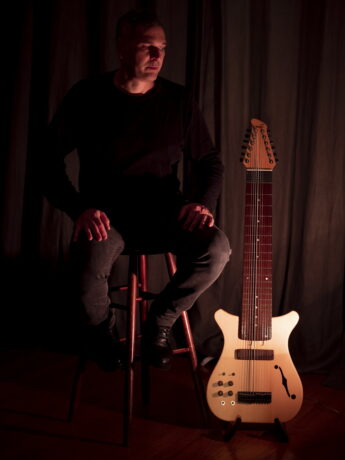
SW: When you do a solo, does it start typically as a bass solo, and then it becomes a guitar solo, or?
JB: No. most of my solos, I think of it kind of like it’s the guitar solo time. Or more specifically, I would say I think of it as more higher end. Like I still think of being a bass player. I still think that the low end needs to be there. So most times, I’ll keep the low end going, and then the guitar is the one that’s soloing over it. When I play with drummers, I feel like I have the ability to do that because then you could have the guitar hand kind of more comp while the bass hand is playing a bass solo. But I feel like when I’m just simply playing by myself, if the bass takes a solo, it does feel a little bit like something dropped out. So when it’s just me alone, I typically take more guitar solo, as I would call them. But with a drummer, there is that ability because something else is happening underneath it so the bass can kind of do its thing a little bit easier. At least that’s what I found.
SW: You mentioned tapping. And you mentioned Billy Sheen as a bass player. Were there guitar players you admired, like Eddie Van Halen or anybody?
JB: Growing up, a lot of it’s interwoven, like Steve Vai. I mean he plays with both those guys. Joe Satriani, I liked that idea of instrumental guitar or bass albums. So you know the early Joe Satriani albums that were coming out at the same time as the Stu Hamm albums were coming out. And I was really big into that stuff. And then Passion and Warfare came out, and that was the greatest thing that ever came out. And so there was a lot of that was really kind of my inspiration into this stuff. Eventually, I found other people like Jonas Helborg, who he plays with Sean or used to play with Sean Lane, and I loved the stuff they did. So I really got into Sean Lane’s guitar work before he passed away. So yeah, there are a lot of guitarists that I like. I would say that bass players were always more the people I followed the most. But as I’ve gotten more and more into taking what I consider more guitar solos, I’ve actually started listening to a lot more guitarists now, whereas I used to think of myself more as a bass player, first and foremost, and listened to them the most.
SW: When did you first pick up a guitar or bass?
JB: I started on piano, which I think also helps with this instrument because it’s a tapping instrument and you play it by tapping the strings kind of like you would tap the keys of a piano. I started on piano. I picked up guitar first, and that was kind of going into high school. So bass came very, very soon thereafter. I wanted to be in a band, and we had a guitarist, so I became the bass player. And that was, I mean, kind of typical story for a lot of bass players. So that was really where I got into bass. And I didn’t realize at the time, but it became something that I just fully engulfed myself in because I started taking upright-based lessons, which were classical and jazz-related. I started taking electric-based lessons as well, which were more jazz-oriented. And I was playing in rock bands pretty regularly. So I would say that when I became more serious about it, I was a bass player, and that was kind of a high school into college time period.
SW: When you started playing piano, was that something your mother forced you to do, to learn something, or did you want to do it?
JB: I think I must have been asked, but it probably was encouraged heavily by my mom initially. I think that’s what helped and I think this is probably common for a lot of kids, it helped that I was good. I think you know when things come natural to you, you tend to like it a little bit more because it’s not this chore. And so because I was pretty decent on the piano, I remember playing a recital and parents coming up saying that, ” Oh, I had a lot of talent and I could do something with this. ” I think that helped push my excitement. So what must have started as a piano lesson based on my mom wanting me to go do it, it pretty quickly became something that I actually enjoyed doing as well. So I can’t say that it was like torture for all those piano lesson years.
SW: When you were playing, did you enjoy the tinkering part? Were you just playing and creating sounds, or did you enjoy learning compositions and stuff? In the early piano stages?
JB: I always wanted to do that. In fact, I always wanted to learn the songs that I wanted to play. But the way I focused, I’d say however it took many years. I took piano lessons, they were very focused and they were very structured. I would say it was very beneficial. In hindsight, I really appreciate that. But it was very rare that I got to play anything that I would have wanted to play. In fact, I never got a chance to play a rock song or anything like that. It was always very, ” This is the next classical piece we will be tackling ” kind of a thing. So I think it was always in me to want to write my own music. It wasn’t necessarily allowed during those piano lesson days. Having said that, I don’t regret it in any way, shape, or form because I believe it’s what gave me the foundation in order to do what it is that I can now do. Because, yeah, maybe it just kind of suppressed all sorts of creativity in me for so long that, all of a sudden, it just became so much easier because ever since I’ve been in bands, I’ve always been the primary songwriter. So I can’t blame it for stifling my creativity in any way, shape, or form, I guess.
SW: Getting in a band initially, I’m going to say you’re 15. Was it for the girls, or, you seem to have more of a creative background and you actually want to be a musician and do all that instead of just getting girls?
JB: I would say so. I think for good or for bad, I overthink things and so everything I do has got a lot of thought process behind it. I don’t think people on the surface will ever really understand or see it. Even these conceptual albums, there’s so much more that goes into them, whether it be like this part of the music, I intentionally do this because this is what’s happening in the storyline in my head. All that stuff, I’m sure, is pretty much missed on the audience. But I’ve always liked that. I’ve always really enjoyed just the art side of things. So for me, it was really less about that, you know the girls or fame or anything like that. It was really more about just creating what I believed was something fantastic in an art sense. That’s probably not the way to make lots of money, but for me, it’s always been kind of my approach.
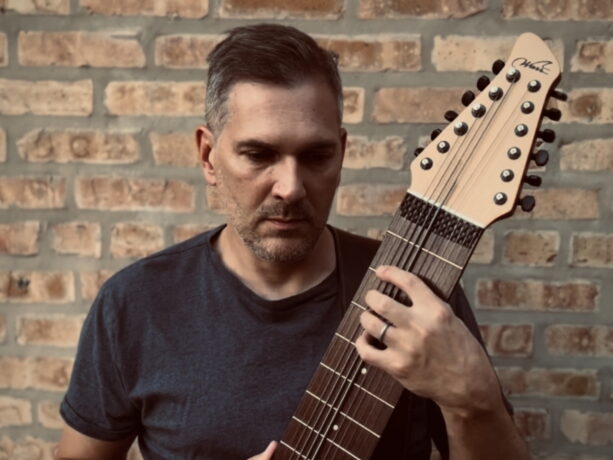
SW: Were you always into the progressive type of stuff? Because you mentioned you couldn’t play your own records on the piano and stuff or your own songs.
JB: I wouldn’t say I was always into Prog Rock, but I got into it somewhat early. I think what happened is, the minute I became good or better, or however you want to say it, that music just seemed like a natural progression for me to get into. I was listening to whatever it would have been on the radio as a kid and stuff. But then eventually the better you can play an instrument, you start to seek out other musicians that are also you know doing something beyond what you hear on the radio or whatever. And I think that’s what kind of led me into the jazz world, for example, and then also Progressive Rock. And that would have kind of happened at the same time. It also helped. I actually worked at a record store for many years, my college years were spent at a record store. So the opportunity to listen to whatever I felt like listening to was there. I got into a lot more music that way. I got into world music during that time period as well, a lot of classical stuff. I think that was also very helpful to be immersed in so many different styles of music. But ProgRock was one of them at that point, obviously. King Crimson was one of the bands I was excited about.
SW: When you were doing piano, were you having even thoughts at the idea about creating your own music, or were you just learning the instrument?
JB: When I was younger, we would take piano lessons on the house piano, whatever. But I was asking for keyboards. And so I have this little synthesizer thing. I mean, by today’s standards, it’s pretty, it didn’t do much. Let’s put it that way. It made a piano sound that was about all it did and a few other things. But that was the thing that I wanted to really turn into me creating music. At the time, this is now going back prior to even being in the bands and prior to any of that time period I mentioned. I was really into the Cars, and I really, really loved what Greg Hawks was doing on the keyboards because he was creating all these cool sounds underneath the Cars music. So that became really the starting point of what I wanted to do. I thought I wanted to take my piano lessons into being a keyboard player and being like a Greg Hawks.
SW: Do you remember your first song you created? You composed?
JB: I do. It’s terrible, though. I wrote it for a girlfriend. It’s simplistic. It’s reminiscent of a bunch of other songs, but I do remember writing it. I would say that the best part of it is just simply that when it was done, I mean, it was super simplistic, but I felt an excitement that I had created something, even though in hindsight, it sounds just like something else, and there was no real true creativity to it. But the fact is, that idea, that process of creating something, and then playing it for somebody, that was the icing on the cake, is that you know I created this, and then there was an appreciation on the other end of it. I do remember it and remember liking that feeling. And that’s probably what started the whole thing as much as the song itself is very forgettable, but The song was written about her or for her?
SW: Did she know it was about her and everything right away?
JB: Yeah. I used her name as the what are those called? I’m Blanking on the name of where you take the letter of the name, a caustic poem. I used her name to create a title, and that was the title of the song. So she very much knew it was for her. But you write it and now you joke that it’s not very good.
SW: But at that point, it must have felt like, ” you know I’m a songwriter. I’m good at this. ”
JB: It was written on guitar, so it would have been around the time that I was into guitar. I liked it. I felt like it was the start of something, it was the start of me joining the band and switching to bass. So it played a fundamental role in the development, I would say, in that sense. But I wouldn’t say that it was like, I think moving to bass is really what pushed that along a lot further, I would say.
SW: And for sake of discussion, can you explain to people how important a bass is in a song between you know the bass and the drums, to me, are basically the foundation of the track. People don’t seem to understand that. Agree? Disagree?
JB: It’s an interesting thing because sometimes, it has to be a feel thing. A bass, you should feel it, and you can tell when it’s missing. And I don’t know if people realize that, but if you take it out, they would understand how important it is and what it does for a song. That low end is really the basis of the song. Anything can happen over the top of it, but you need that foundation and drums and bass or what does that. That’s a good example of that is what I was saying before, like with doing the solo album. When I stop a bassline and start taking a solo, unless I had the drums there to keep a foundation, it just doesn’t work that well. And that’s not to say I used to play solo bass songs too, but a solo bass song is now just it revolves around being a solo bass song. In this case, it was a structured like a normal song. But then when the low end drops out to take a solo, it became a very noticeable thing that, for me, was like, ” Now, this doesn’t work. I’d rather take the guitar sound off this song or have the drums in it. ” But yeah, to me, like I said, as much as I play a touchstyle guitar in bands, I consider myself the bass player. And to me, I just went and saw Stanley Clark. It was two weeks ago. I really am a bass player at heart. So that’s who I enjoy watching the most. And so the importance of it, I don’t think people realize how important the bass is to a song.
SW: You start your first band, your second band. At what point do you decide you want to become a musician full time? Did you have dreams of grandeur, and you want to be Rush, and you want to do all that stuff, or do you just want to create?
JB: I think that has come and gone in different phases. I would say one of the earlier bands {I was in}, that definitely was the goal. I mean, in our minds, we were touring the world. Then I would say as things kind of progressed, a little bit of that kind of went by the wayside. You know Life things happen, whether it be getting married or things like that, where you lose a little bit of that idea. And then it kind of comes back up every once in a while, and then it’ll go back down. I would say it’s strange because at this point, I’m maybe more interested, but also more capable and in a place where it’s possible to do all that. So it’s kind of resurfaced in recent years because I very much enjoy playing. So I booked a small little tour last summer, and the band is playing Prog Stock in a few weeks. That’s out in New Jersey. We played Prog Day last year. That was in North Carolina. I love playing these Progressive Rock Festivals and getting out there more and more playing. It’s kind of weird how, in certain years, I would say that that whole idea kind of subsided and I thought like, ” Oh, it was just a pipe dream. ” And then in other years, it kind of comes back up where it’s like, ” Oh, I’m very much enjoying doing this and want to continue to do it, and let’s make it happen, ” kind of a thing.
SW: Did your parents always support your artistic endeavors?
JB: They did and still do. Yeah. I have nothing but 100% unconditional support. In fact, my mother and I went and saw my daughter at college yesterday. And on the car ride home, I gave her a sneak peek of something I’m doing that will probably come out next year. And I love getting feedback and comments from her because she loves the stuff I do. I know that it’s obviously a tainted sort of review, but still, I love it. I love giving her a first peek at stuff too.
SW: Mom aside, do you tend to do that with other people, you know, kind of take ideas and stuff, look for feedback?
JB: Yeah. You know I use my wife as a sounding board because musically, what I do cannot be further from what she listens to. So if she likes it, it must have an ear for more of a mass because what I create is the opposite of what she would like and listen to. So I like to sound things off of her because, like I said, it really tells me like, ” Okay, this is not something that everybody would like, ” or, ” This is something that like this is not meant to be sarcastic or me, but if she likes it, then it must mean it’s kind of good because she does not like most of the stuff that I would say are the genres that I work in.
SW: But when you compose, is it almost, I don’t want to say from a selfish perspective, but are you playing stuff you want to hear and stuff you think is cool or stuff you think is commercial enough? ”
JB: No. It’s definitely the former. I create what I want and wish somebody else would have created. I very much create what I think is great. I don’t know if it is by other people’s standards, but for me, I think when I venture into more traditional sort of realms, I believe I have a more unique writing style, and it’s a very linear sort of way. I think a lot of the way I play, I like to line notes up in certain patterns and do things like that. So I don’t know if it’s necessarily going to be something that’s always understood by a larger audience. But for me, it’s very much what I would want to hear, and that’s kind of how I compose. When I like the song or when I get a smile, that’s the test for me. If it makes me smile, like I think I’ve done something right.
SW: But have you written a song, a piece of music that even impressed yourself? Like, damn, that’s pretty good.
JB: Well, there’s a song on this upcoming album where I absolutely love the solo I take on it. A Perverse Rumination, that song. I don’t know. That particular solo just stands out where I think that every note choice was the perfect note choice. And I don’t think it could have been done any different or better. It just somehow came out perfect.
SW: Are you involved in the post-production side of everything? Do you just do the music and hand it over to a producer.
JB: I’m very involved. I always have a bunch of things going on. So what I tend to do is work really hard on something for a little while and the recording aspect of it, then take a break from the listening side of that, and then move on to the next recording thing. And then we re-approach. I’d like to be there for mixing. I like to be there for a lot of that process, but it’s very much like, you know, remove yourself a little bit from it, give yourself some distance, and then re-approach it. Typically, it always sounds better than I remember, which is a good thing. And it’s just a matter of cleaning it up or getting the right mix. But I very much am involved in a lot of that, including even down to like, I don’t do the mastering. I don’t do the mixing, but I’m there as much as I possibly can, or I choose people who I know that I really like what they’re doing. So that’s more of the mastering thing. Mixing, I’m always there in the room for it. I don’t know if I would call myself a control freak, but I definitely am very involved from start to finish.
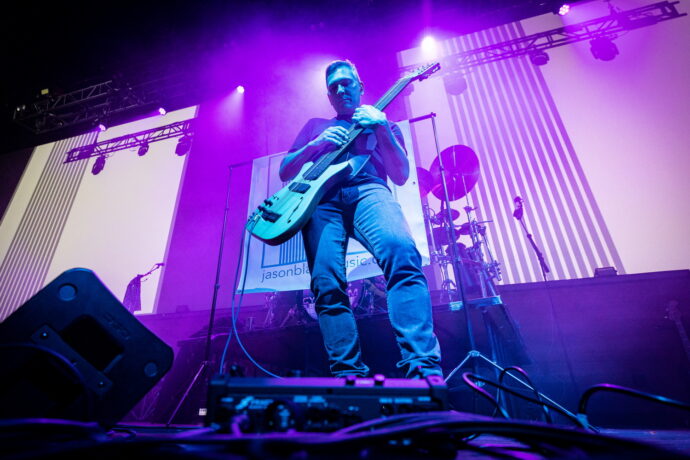
SW: So you’re okay with a fresh set of ears hearing something and maybe suggesting you know this might work better if you turn that up or turn that down or something?
JB: I’ve become a lot more open to that. I don’t know if the younger version of me was so great at that, but one of the things I did, I made a conscious decision. At one point, it was about 15 years ago or so. I started buying studio equipment, and I really thought that that was one of the things I wanted to do.I soon realized that in order to play the instrument to the ability that I want to play it at, I can’t devote time and energy to also learning this other skill that people want to do their whole life. So I very quickly realized that I have nothing to do with the recording aspect of it. I just want to be the player. So when it comes to the recording and in studios, I really allow them their feedback, their ideas on even arrangements. I’m open to stuff like that if somebody has a great idea. And I would say a great example of that is the new Azula Cry album. We’re working at Transient Studios and Transient Sound. And Steve over there has offered a lot of ideas, and I’m very open to hearing them and changing the song to match some of his ideas. I think that’s somewhat new that I’ve been able to do is just open that up like that. And so I don’t know. I feel that’s important because, like I said, I just don’t have an interest in doing that. At the end of the day, I just want to play. So I accept their expertise on that. So as long as it’s not fundamentally changing anything that I envisioned, but it’s never happened like that either. Most of the time, I feel like people around me kind of see what I’m trying to do, and then they just, through their skills, make it better.
SW: These two albums, the Radiant Dusk and Subsequent Ruins, how much of your actual original ideas were you able to finish with, did you get everything you wanted conceptually? Were there big changes maybe because of budget or time, or?
JB: No. Subsequent Ruins is a great example where I put everything into that. And really, I feel like the creation there is exactly the way I saw it. Both these pieces were done by the same artist, a German artist, Hajim Mueller, who does work. Right now, he’s doing the new Stephen Wilson album is his artwork. So both of them, one’s a little bit more elaborate, and that’s the Subsequent Ruins. We worked really hard on creating that. There’s an entire 12-page booklet inside of that of his art and that all corresponds to the story. So that was very important to have that. So I would say that with that album, using Marco Miniman as the drummer on that album, was very much from start to finish, everything that I wanted it to be. It also took a while. Most of last year was spent devoted to creating that album, because I don’t work entirely like that, where I spend all my days doing just one thing, that was actually how Radiant Dusk came about, was that I was composing these longer songs, these more progressive rock songs. And every once in a while, I’d just be noodling or something would come out that seemed a little more 4/4 or a little you know not right for that album. And I just kind of put it off to the side, and that became the basis of what Radiant Dusk was, was just like a lot of pieces that were really good but didn’t fit that album. So I wanted to create something that was unique unto itself with this material. So that became Radiant Dusk. I would say the cool thing about Radiant Dusk is that, and again, not something that I skimped on in any way, shape, or form from production standpoint, is that it became its own little monster, I would say. So the announcement came out that there’s Radiant Dusk. That’s the 10-song album of Solo Warr Guitar. There is an accompanying album called Slightly Different Paths, which is going to has some of the songs plus an additional song with drums on it. So that’s an accompanying EP. And this hasn’t even been announced yet, I actually have it here somewhere. Here it is. There’s a song on Radiant Dusk that I wrote for my wife. My wife is from Spain. So I wrote a song that has tinges of, I would say, Spanish influence into it. And so one thing led to another. Then I created a separate EP, which will be the third of it. So there’s kind of like three albums that are going to come out progressively one after another, all based on this one Radiant Dusk album. And it’s a little EP of Spanish music that’s all inspired by her hometown that we go to in the summer. So really, what was the songs that I was writing that didn’t fit Subsequent Ruins became Radiant Dusk, and Radiant Dusk became Slightly Different Paths and this EP called Seemingly Quixotic. So it spawned all sorts of extra stuff that just I would say last year, I spent the majority of my days in a studio recording all of this stuff. And not only did my vision come to fruition, it kind of spawned more than I even really thought at the time I was planning to do. So that’s really how this all came about. As an artist, you keep evolving and you grow.
SW: Do you ever go back and listen to some of your, I guess, earlier albums and maybe say, ” God, I wish I would have did this this way, ” or do you just leave it the way it was recorded, and that’s it?
JB: That’s an interesting question because I would say I have this thing that I’m looking to make the perfect album. And with every album that I’ve done, I find something that I wish or I could have done differently. Radiant Dusk is about, I would say, as close. It might be my first, there’s nothing I would change on that type of album. It really is, from my standpoint, some of my best playing and some of my best compositions, I would say, to date. So I typically like to leave the past, the past.Having said that, there is a song I wrote a long, long time ago that I might re-record just because it makes sense. But otherwise, I would say that I like to leave things in the past. A good example of that is in Azula Cry, the new lineup, we’ve considered going back and re-recording some of the old songs with the new lineup. And at the end of the day, I feel like it was what it was. If I had nothing new coming out of me, maybe that would be a reason to go backwards. But because I have what I believe is better stuff coming out of me right now, it just doesn’t make sense to go backwards. But I get why people do it, because there’s things I would obviously like to change, wish I could, you know, wish I could go back and do. But it just doesn’t seem like it’s something I really care to do because I feel like right now, there’s always something in fact, there’s already two or three albums almost done or close to done for next year. So I mean, to go back and do some of that, I don’t even know when it would come out, because I have so much new material coming out over the next few years, so.
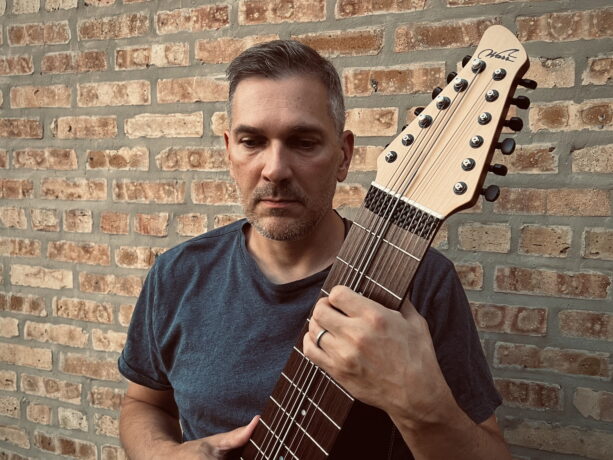
SW: You mentioned you’ve written some Spanish stuff. Was it inspired by your wife or was it for your wife? And did that change your creative process of you know you want to make something she’s happy with? Or do you want to try doing Spanish music or all that?
JB: It’s something I’d like to do more of. In fact, we went for a walk the other day and I said, ” you know, Maybe I should actually take formal lessons on flamenco guitar so that I can truly feel like what I did for her was you know, my version. I like it. She loves the album. But I wouldn’t call it, you know, I would not put it next to Paco de Lucia and say like, ” Oh, look, we’re together on this. ” It’s nothing like that. So for me, it’s like something I wanted to do for her, like somewhat as a gift kind of a thing and for her family, so that they had to stop pretending like they liked my Prog metal and they could actually listen to something that I think they would truly enjoy. So it was a little bit of that. But also, it is something that I actually like and I’ve learned to like a lot more. So I do want to delve a little bit further into it. So maybe this album was just maybe a gift to her, but it’s also kind of spawned this idea that I’d like to incorporate some more of that music into my solo acoustic Warr guitar playing, where it’s a little bit more, not just inspired by, but more a true reflection of spending time there in her native country.
SW: You as an artist and a creator, how much do you think you’ve grown from when you started, to having the idea of writing maybe a cool song to now, it sounds like your pieces are a little more complex. Would that be true?
JB: I can’t even put a number or a visual context of how much I’ve grown. I feel like it’s leaps and bounds. I feel like, with this instrument, that’s one of the cool things about it is, it’s a relatively new instrument. So everybody playing it has kind of taken their own approach to it. I mean, there’s some great players out there, but I don’t think any of us really all play it the same way. And I think that’s what’s kind of cool about it. So I’ve taken my approach to it. I like what I’m doing on it. I think I’ve continually improve on it. If I think back at what I was originally doing and even the original compositions on the instrument compared to what I’m doing now, it’s really night and day. I can’t stress how much there’s been for me, I see it. I see this improvement. So then that’s what I like about it is and I don’t feel like I’m there yet even. I alluded to it earlier how you know I still don’t feel like I’m to where I want to be. And it’s because I think there’s just so much potential with this instrument to do something that hasn’t been heard before because of the nature of it. I mean, you have basses out there, you have guitars out there, but this is now an instrument that has both of them. And it opens up so many ideas. And I have these grand ideas in my head, and now, I just have to start doing them.
SW: You mentioned Stanley Clark earlier. Billy Sheehan, would there be a dream collab for you? Somebody you’d want to work with or do something?
JB: Well, from just like my idols, I think I’d love to do something with Jonas Helborg. Jonas Hellborg, to me, was always, and I think that’s another reason why sometimes you know, why do I have an ambient album and then I have a progressive metal album and then I have a Prog Rock album and then I have acoustic soul albums.With Jonas Hellborg albums, you never knew what you were going to get next. So I got into him in the early ‘ 90s, and he put out an album with Glenn Velez, and it was just him on acoustic bass with frame drums. And the very next album after that was with Ginger Baker’s son and Sean Lane. It was called Abstract Logic, and it was this fusion jazz thing. And then the next album after that, Temporal Analogs of Paradise was this two-piece 60-minute long improvisational thing. And then the next one after that was I mean, he did albums with a Sitar player, and then he did one with a frame drum player and a guitarist. I just love that every album that he does, you don’t know what’s coming next. The album that’s just came out now is it’s an actual old album recorded-wise, but with Bernie Warrell on keyboards and Ginger Baker on drums and him on bass. I love that idea of just doing different things. I’d love to do something with him just because he has been, I would say, an inspiration for me. In terms of actual collaborations, I feel like I’m at a point right now where, I’m actually reaching out to the people that I really would like to do stuff with. Working with Marco Miniman was an amazing experience. And there’s something in the works to do that again. So I have the next, it’s not a sequel to it, but the next Subsequent Ruins sounding album has been written. And so I’m in the process of starting the demo that to give to him to be on drums on it again. I alluded to something that’s coming out next year. I just worked with another person that I really wanted to work with for a while and just got back his tracks. So that is going to be in fact, tomorrow, we’re going to start mixing that. Plans probably early next year to release that. It’ll be a little EP. It’s like a three-song suite of music. I’ll mention more when it gets closer to it. I don’t want to say who’s on that. I feel like now it’s kind of fun because I am working with some of the people that I would like to work with. But I guess if I had to come up with a dream one, it would be, like I said, Jonas Helberg. I think that would be really cool to do something with him.
SW: You don’t do the album tour, album tour cycle? You create and then kind of squeeze the shows in between?
JB: I would say that’s a little bit more Azula Cry, a little bit more like that. My stuff, not all of it merits playing out. Some of the ambient stuff I release, it just kind of comes out into the world and does its thing and then moves on. But I’m slowly starting to also kind of push some of that off to the side in favor of the music that can be played live. Because I think at the end of the day, the thing I enjoy the most is actually playing out live and playing the songs that I’ve just written. With Subsequent Ruins, I played a decent amount of shows playing that material. This Radiant Dusk, I’ve been playing on and off for about a year doing these solo gigs. And next year, I’m going to really heavy up on that with this album coming out now. There’s a bunch of stuff in the works for early next year. And then next summer, that’s really what I want to do is heavy up on the Radiant Dusk album. So that’ll be the first one where I actually am releasing this and have full intentions of touring as a cycle for the album. But at the same time, there’s a new Azure LaCry album coming out early next year, so that will also kind of probably take some of that time up too. We’ll see where I squeeze this all in.
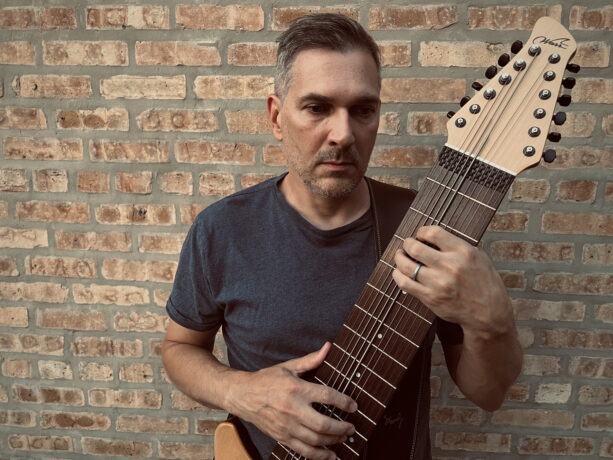
SW: When you play live, do you get backing musicians for a solo gig, or do you use backing tracks? How do you feel about people using backing tracks and all that stuff?
JB: Somebody suggested I do that. I recently saw a show where somebody did it, and I was kind of turned off by it. So I don’t think it’s for me. I don’t think I would personally do that. As much as that would be great to have Marco Minimum drum tracks playing behind me, I think because it’s not really him physically behind me, I don’t like the idea. I played with some local drummers for the stuff that had drums on it. And then the things that don’t have drums on it, obviously, I don’t require anybody to be with me anyway, which is another reason why I do a lot of the solo stuff is, it allows an opportunity to just be out there and play more often by having the solo material so that I can it’s quick, easy setup. I’m the perfect warm-up band for anybody because I can be on and off stage in two minutes and they can have their whole setup behind me. Meanwhile, it was nifty enough and unique enough that I think you know the audience enjoys it as a warm-up band. But yeah, in terms of performing the actual stuff, I do like to actually have a band with me.
As Azula Cry, or those bands, it’s the actual members. For my solo stuff that has drums on it, one day I’d like to do a show with Marco actually there,in the meantime, it’s been more, just local drummers filling in and doing their thing over his stuff.
SW: You as an artist, do you record your live shows, then go back and critique you them, or do you just do the show, and that was the show, and tomorrow’s another show.
JB: Yes. I want to get better at that. I do like to record it, just simply for that standpoint, to critique it and just to hear. I like to listen to things once, though, and that’s it. I’m not really a dweller on any particular show, but it’s good to just confirm what I thought or in some cases, ” Oh, maybe that was better or worse than I thought, ” whatever. But I like to listen every once in a while. I’ve just recently started actually doing that, recording shows. But for the longest time, I never really did because they seem to me as just like moments in time that, you know were meant to be just that, moments in time. So I never really thought much about it. But I know, for example, Prog Stock is going to be recorded, and it’s also streaming live. So with that in mind, I’m taking a little bit of a different approach to it, really thinking about just playing-wise, making sure that I’m pristine so that I can look back at that recording and live stream and be proud of it. So it’s making me just analyze a little bit more of my playing. I’ve been recording lately a little bit more of what I’ve been doing just so that I know what I’m getting on that future live recording.
SW: If you make a music video, do you tend to stick strictly to what your concept is, or do you allow people to maybe, interpret the piece however they’d like to interpret it?
JB: I would say it’s a mixture. With my ambient music, I work with an animator. And I would say with most of that, I’ve given complete control of the visuals to the animator. I give the idea what the concept is about, and then I let them go with it. That isn’t always the case. There was a video I did for a song called ” Ghost of a Small Child, ” and that was very much my idea from start to finish. And that same animator just basically created my idea. We’re working on another one right now for something coming out, and I gave the loose storyline for it, and then again, I let him create it. Otherwise, I would say most of the time, I would say kind of the same way as what we were talking about with mastering and mixing and stuff. I like to have a little bit of my fingers in the pot, but I also understand that that’s their expertise, so I don’t want to mess with it too much. If you look back on Azula Cry videos, I would say there’s a great example where a guy named Jeremy Bessoff did the visuals for those videos. And sure, there was minor parts of it that may have a little bit of my fingerprints on it. But for the most part, I would say that’s entirely their thinking, which it starts with something that I’ve created. So it’s not like I’m completely removed from it. But I really do like their creative input to be involved in it because, I mean, that’s what they do. I think they’re better at it than me.
SW: ProgRock 2023. What is Prague Rock in 2023? Is it different than the King Crimsons and all that from back in the day? Is it just a generational thing?
JB: Yeah. I think it has to. I just had this conversation with a club owner and they were talking about the audience getting older for ProgRock. And so in order for the music to survive, I really honestly think that something has to change. And I would say it has. It’s just that, maybe people don’t associate it with it. So a good example is I’m a big fan of a band called Animals as Leaders. That, to me, is Progrock 2023. It’s two guitarists and a drummer. And it’s instrumental. It’s odd time signatures. It’s all the things that I love about the old Prog Rock. It’s just sounds more modern and is put into, I don’t know if they necessarily call themselves even Progressive. I think that’s probably what it is. A lot of the newer bands don’t necessarily label themselves as that. But to me, that’s what it has moved into. I think it’s that heavier sound. You can look at what Dream Theater kind of started with the Prog Melody thing. But there’s a lot of those bands out there. I think that’s what it looks like. That older sound, I think is not necessarily dying off, but it’s not necessarily as prevalent, I would say, as it once was. I still like those bands. I think a lot of people like those bands. There’s a whole nostalgia to it. But I think there’s a lot of bands creating cool things right now that just doesn’t necessarily sound exactly like that, that sound for me yesterday.
SW: With social media and everything else right now, to be a successful Prog Rock artist in 2023, do you have to get out and do all the social media stuff too, or can you just basically still be a musician, put it out there, and hope people respond to it?
JB: I don’t think so. I think you totally have to. That was one of the hardest things for me, personally, because in fact, you know it’s weird. I do these albums where the concept around it is, you know the cell phone and how it’s ruining children. And yet, it’s become a necessary evil in the same sense because I don’t know how you possibly can. To me, it’s still a learning process. I consider myself still somewhat a private person, so I’m not there yet in terms of putting my whole life on the internet. That’s not for me. But I see the benefits of doing that. I see the people who do that. I know what some of my favorite rock stars now are having for dinner. I don’t know if I even care that much, but it seems to work for them because, well, it means something to somebody because they’re getting thousands of likes on their plate of pasta. So I understand that that’s part of it now, and I absolutely think you have to play that game. I’m learning it, I think I would say, is where I’m at with it. I try. I understand its purpose. I don’t quite understand the algorithms and how that works. So it’s all a learning process for me, but I think it’s something people have to do now.
SW: You mentioned earlier you had a child, and you have record about how phones affect children. Will that, or did that change maybe the way you raise your child? Are you consciously, subconsciously, aware of that?
JB: Absolutely. My daughter is 19 now, and she did not have a phone until she was into high school. I believe I raised her the way that, I don’t think it’s happening right now. I see super young kids having phones now. I definitely raised her the way I believe you kind of, let’s put it this way. I’ve practiced what I’m preaching through my little conceptual ideas and stuff like that. So yeah, to me, that was important to not allow that and to push it off as long as possible. I think there’s just a certain brain development that needs to take place before kids can really fully understand the scope of what that stuff is. So I believe I sheltered her a little bit from that, and I think that was a good thing.
SW: Was there that whole dad argument? Dad, I have to have my phone. All my friends have it, and I’m not going to be cool and all that?
JB: I am probably the luckiest father in the world. I’ve got the greatest, easiest to raise child ever. Her and I are inseparable. And as a result of it, I think she just always respected my thoughts and opinions and just understood where I was coming from, and there was never really an argument. SW: Does she see dad as a rock star or dad as a dad?
JB: Dad as a dad. I think she listens to a lot of my stuff, and she actually likes it. But I think I’m dad, first and foremost.
SW: Thank you for speaking with us, please check out Radiant Dusk and be sure to check out all of his socials, platforms, etc.
https://www.jasonblakemusic.com
https://www.instagram.com/jasonblakemusic
https://www.facebook.com/jasonblakewarr
https://twitter.com/jasonblakewarr
https://jasonblake.bandcamp.com
Ralph Greco, Jr. is the devilishly clever nom de plume of professional writer/musician Ralph Greco who lives in the wilds of suburban New Jersey. He is also a podcast co-host, but as everyone has a podcast these days, this fact is of very little consequence.
Ralph can be reached by writing ralphiedawriter@gmail.com
Follow us on twitter, tik tok, instagram: @emmreport

